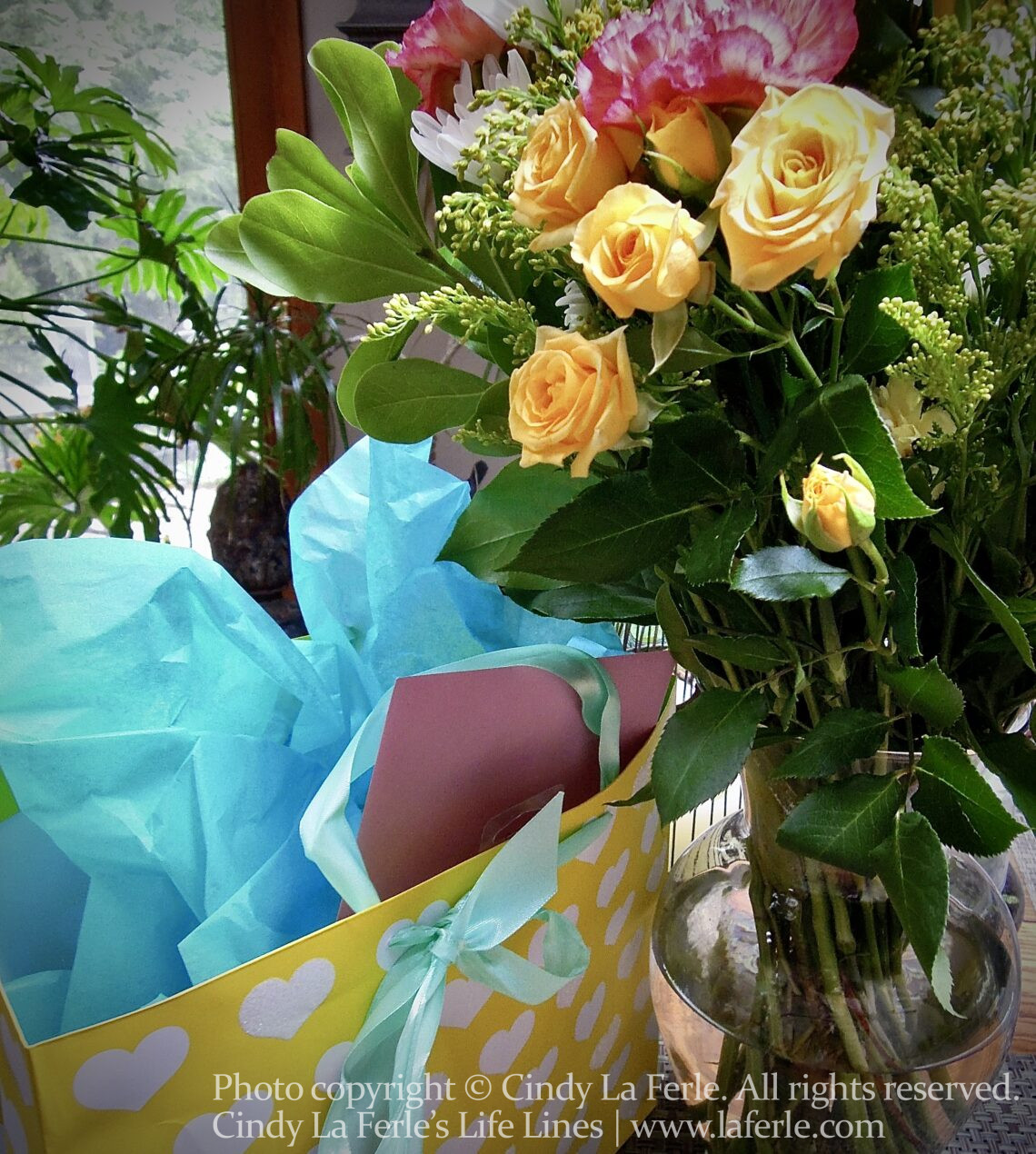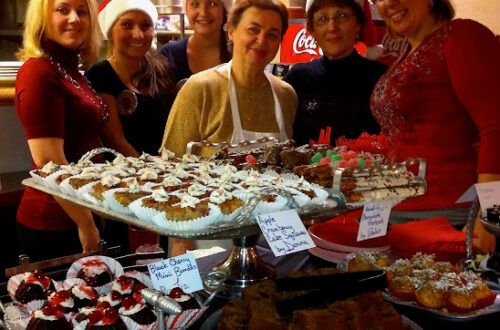
The gift of receiving
Excerpted from my book of published columns, Writing Home, this essay was first published in Chicken Soup for the Soul (Healthy Living Series) and reprinted in Catholic Digest, April 2007. It was also featured on Sirius Radio.
THE GIFT OF RECEIVING
A few years ago, when I was diagnosed with osteoarthritis in both hips, I read everything I could find about coping with chronic pain and illness. I was amazed at how often I’d stumble on a paragraph that advised patients to “look for the gift in your pain.”
Pain is a gift? Thanks, but no thanks, I’d mutter to myself. I had just turned 44 and hadn’t planned on slowing down so soon. I still had miles to travel with my journalism career — and a family that included a very active teenager. If pain was my gift, well, where was the return policy?
Within a year of my diagnosis, the disease progressed so quickly that total hip replacement surgery was my only option. By that time, I was unable to walk without assistive devices. Even on a good day, it hurt so much to crawl out of bed that I refused to unplug my heating pad and leave the house. Suddenly I was disabled — and even qualified for a “handicapped” parking permit.
Having been fit and active most of my adult life, I was way too proud to let others watch me struggle on a walker. I hated to appear needy. I started cancelling lunch dates and appointments, and tried to hide behind a steely mask of self-sufficiency.
But my closest friends and family didn’t buy any of it. And it was through their patience and love that I finally discovered the “gift” in chronic pain: It slowly unravels your pride and opens you to the boundless generosity of other people.
“Surrender is no small feat in a culture that applauds the strong, the independent, and the self-sufficient,” writes Victorian Moran in Creating A Charmed Life: Sensible Spiritual Secrets Every Busy Woman Should Know (HarperSanFrancisco). “That heroic stuff is fine when the problem is something we can handle through our own self-sufficiency. But nobody climbs a mountain alone.”
Of course, stubborn self-reliance isn’t the sole province of the disabled.
Most women I know pride themselves on being nurturers, fixers, problem-solvers, givers. We’ll supply all the brownies for the bake sale at school after we’ve organized the rummage sale at church. We’ll rearrange our schedules to baby-sit other people’s kids. Just ask, and we’ll triple our workload at the office and still make it to the evening PTA meeting. Yet some of us would rather have a wisdom tooth pulled than ask somebody else for a favor when we need it. As a girlfriend told me recently, “It’s my job to be the glue that holds everyone and everything together. I can’t ask for help.”
The truth is, people who care about us really do want to help — if only we would drop the mask of total self-sufficiency and admit that we are not all-powerful all the time.
Discussing the aftermath of September 11 and the clean-up at Ground Zero, a talk show host suggested that if anything positive rose from the ashes of the tragedy, it was that America quickly evolved from a “Me” nation into a “We” nation. As she explained it, even the most self-absorbed among us realized that we cannot function as loners or islands. We need each other.
It was a good lesson for me to review immediately after my first hip replacement surgery. Strapped to a hospital bed and hooked up to several intravenous tubes, I was hit with the sobering reality that I wasn’t going anywhere by myself.
And during the early weeks of my recovery, I had no choice but to graciously accept support from my family and friends. When my husband processed mountains of laundry at home, I tried not to feel guilty. When our neighbors sent casseroles or offered to drive my carpool shift to school, I swallowed my pride and allowed their care to work like a healing balm. And it did.
As hard as it was to surrender, I discovered there is real strength in vulnerability.
Deep down, I still believe it’s more blessed to give than to receive. And I still believe that putting the needs of others first isn’t such a bad precept to live by — unless it renders you incapable of accepting a favor or asking for help when you really need it.
Nobody climbs her mountain alone. ~Cindy La Ferle
Photo by Cindy La Ferle




